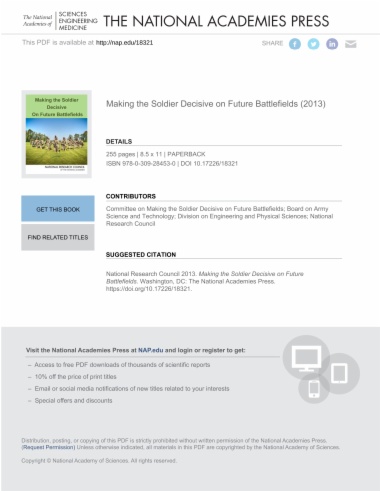

The U.S. military does not believe its soldiers, sailors, airmen, and marines should be engaged in combat with adversaries on a "level playing field." Our combat individuals enter engagements to win. To that end, the United States has used its technical prowess and industrial capability to develop decisive weapons that overmatch those of potential enemies. In its current engagement—what has been identified as an "era of persistent conflict"— the nation's most important weapon is the dismounted soldier operating in small units. Today's soldier must be prepared to contend with both regular and irregular adversaries. Results in Iraq and Afghanistan show that, while the U.S. soldier is a formidable fighter, the contemporary suite of equipment and support does not afford the same high degree of overmatch capability exhibited by large weapons platforms—yet it is the soldier who ultimately will play the decisive role in restoring stability.
Making the Soldier Decisive on Future Battlefields establishes the technical requirements for overmatch capability for dismounted soldiers operating individually or in small units. It prescribes technological and organizational capabilities needed to make the dismounted soldier a decisive weapon in a changing, uncertain, and complex future environment and provides the Army with 15 recommendations on how to focus its efforts to enable the soldier and tactical small unit (TSU) to achieve overmatch.